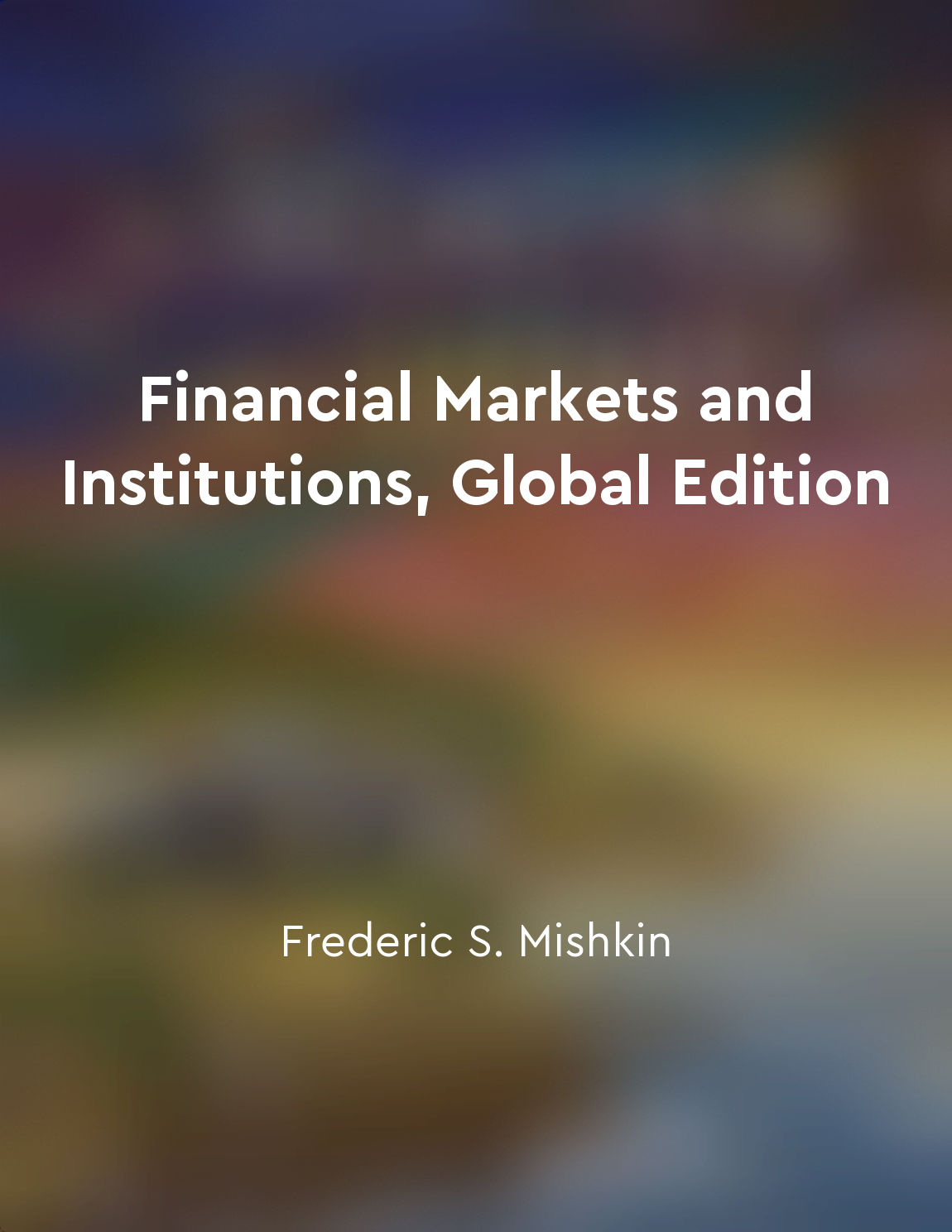International financial regulation aims to ensure market stability from "summary" of International Money and Finance by Michael Melvin
In the realm of international finance, the primary goal of financial regulation is to maintain stability in the global market. This objective is crucial because market stability is essential for fostering economic growth and ensuring the efficient allocation of resources. Without effective regulation, financial markets can become volatile and susceptible to crises, which can have widespread and severe consequences for economies around the world. International financial regulation encompasses a set of rules and guidelines that govern the behavior of financial institutions and market participants across borders. These regulations are designed to mitigate risks, prevent misconduct, and promote transparency in the financial system. By establishing clear standards and oversight mechanisms, regulators aim to reduce the likelihood of financial crises and enhance the resilience of the market. One of the key functions of international financial regulation is to address systemic risks that can arise from interconnectedness and interdependence in the global financial system. Systemic risks refer to the potential for the failure of one institution or market to trigger a chain reaction of adverse effects that can threaten the stability of the entire financial system. Through regulatory measures such as capital requirements, liquidity standards, and stress testing, regulators seek to identify and mitigate systemic risks before they escalate into full-blown crises. Moreover, international financial regulation plays a crucial role in promoting investor confidence and market integrity. By enforcing rules on disclosure, market manipulation, and insider trading, regulators aim to enhance trust in the financial system and ensure a level playing field for all market participants. This, in turn, helps to attract investment, foster innovation, and promote sustainable economic growth.- International financial regulation is essential for safeguarding market stability and promoting the overall health of the global economy. By setting clear rules, monitoring compliance, and addressing systemic risks, regulators aim to create a more resilient and transparent financial system that can withstand shocks and uncertainties. Ultimately, effective regulation is a cornerstone of a well-functioning international financial system that benefits economies and societies worldwide.
Similar Posts
The deceitful practices of mortgage lenders
Mortgage lenders were engaging in practices that were not only deceitful but also harmful to the financial system. They were ma...

The human toll of the crisis cannot be understated
The devastating impact of the financial crisis on everyday people is immeasurable. Families lost their homes, their jobs, and t...

Basic financial statements are key
Understanding basic financial statements is crucial for anyone involved in finance. These statements provide a snapshot of a co...
Technology has transformed the financial industry
Over the past few decades, technological advancements have revolutionized the financial industry in ways that were previously u...
The transmission mechanism of monetary policy is complex
The transmission mechanism of monetary policy involves a series of steps that affect various sectors of the economy. When the c...
International trade relies on stable currency values
Stable currency values play a crucial role in facilitating international trade. When currencies are volatile, businesses face u...

Financial intermediaries bridge the gap between savers and borrowers
Financial intermediaries play a crucial role in the economy by connecting those who have excess funds to those who need funds. ...

